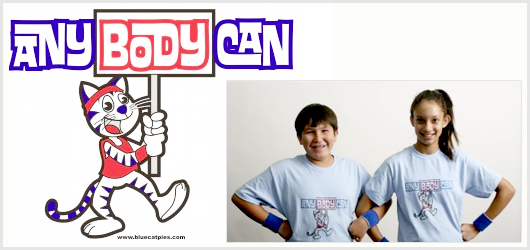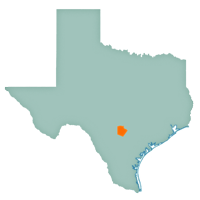Any Body Can
Statewide Need
Medical management alone isn’t effective in meeting the health and wellness needs of many people with developmental disabilities (DD). People with DD are more likely to have various health issues including obesity, and many are reported as not engaged in leisure physical activities. A large number of people with DD live near the poverty level so health clubs may be cost prohibitive. People with DD more often rely on public healthcare, and long-term care cost growth has restricted access and quality of services. Regular exercise is imperative and as publicly funded healthcare costs continue to grow, public systems like Medicaid are increasingly looking for cost-containment strategies.
Project Goal
Promote health, physical fitness, and inclusion of children and youth with DD through recreational and fitness activities. Each individual will become aware of the need to incorporate health and wellness into their own lifestyle and will be given the appropriate tools and knowledge to sustain the changes achieved.
Project Summary
The overall goal and purpose for Any Body Can was improved physiological measures and a balanced diet that would result in overall improved health through weight management, reduction in medication intake, increase in purposeful sleep, increase in attention span, and reduction of secondary diagnoses, such as Type II Diabetes or High Cholesterol. The structure of the ABC health and wellness program consisted of a two-branched approach comprised of nutrition and fitness education. The ABC health and wellness program worked with children that were school age (5-21) and had been diagnosed with a DD.
Program goals for all participating clients consisted of improving physiological measures and creating a balanced diet within the family. Physical assessments were administered at intake, completion of the program, and one-month post program completion. The physical assessments, a tool developed and used in Texas school districts to measure fitness levels, were a key to determining physiological progress in participants. Such measures included but were not limited to weight, body mass index, body fat percentage, and Fitnessgram exercises like pull ups and sit ups.
These goals were accomplished through the implementation of Any Body Can’s fitness and nutrition curriculum throughout the five-month program. Community engagement was facilitated through community partnerships and helped ensure that clients reached their program goals. Partners helped to provide a safe and friendly environment for participating families and clients. As families progressed through the program, they had an opportunity to engage their children in community events held by partner agencies. Experience, based on post-program satisfaction surveys, demonstrated that by engaging a family in the home and in the community, they were more likely to continue living a healthy lifestyle.
- Impact
- Helped support and educate over 250 clients
- Held 10 community summer projects
- Hosted over 35 group exercise classes
- Along with community involvement, professional training was provided through certified continuing education courses focusing on adapted fitness
- Group exercise classes specific to engaging parents in the community were offered two Saturdays a month
- Group exercise classes focusing on clients and siblings were scheduled during the summer with a focus on demonstrating the importance of supporting their sibling with special needs
- Siblings were empowered by the experience and saw fitness activities as a positive activity
- Continuing education courses were developed to help train fitness and therapy professionals on working and communicating with an individual with DD.
- Families experienced positive attitudinal changes amongst their children. As children became more active, they were able to expel excess energy resulting in a calmer state of mind.
Project Period
Mar 2012 – Feb 2017
Contact
217 Howard St.
San Antonio, TX 78212
210-227-0170
Website
Geographic Reach
San Antonio and Bexar Counties


